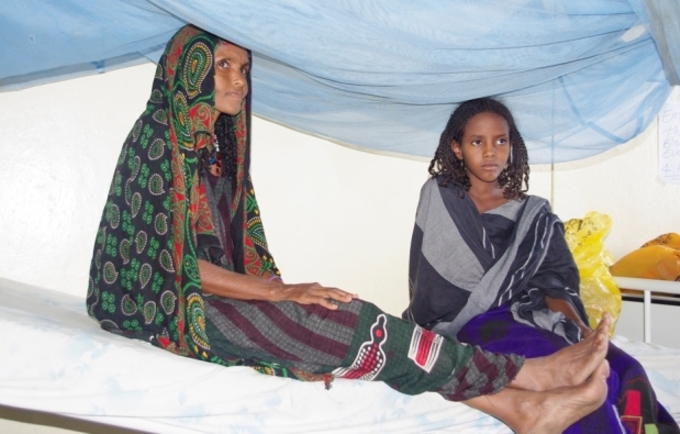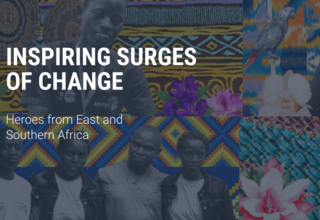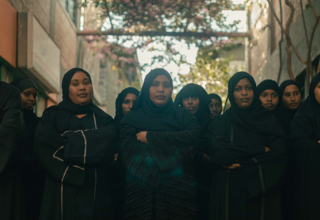AFAR REGION, Ethiopia — Ten-year-old Sadiya Abubakar had been suffering from urine retention for a long time. What should have been a natural task proved for her to be an extremely painful exercise - until she received help at Barbra May Maternity Hospital.
Sadiya was infibulated when she was just seven days old. Infibulation is the most severe form of Female Genital Mutilation/Cutting (FGM/C) which, in many cultures, is often performed between the ages of seven to nine years. But in some districts of the Afar Region of Ethiopia, where Sadiya comes from, it is carried out within the first few days after birth.
Infibulation involves removing the girl’s clitoris and labia minora and majora, sealing the wound and leaving only a small hole for the passage of urine and menses. The practice leads to health complications, such as severe pain and trauma, shock, haemorrhage, sepsis, urine retention, ulceration of the genital region, and urinary infection. Obstruction and tearing during sexual intercourse or childbirth is common.
Sadiya had been passing urine drip by drip, but a swelling had occurred around the small hole and she was unable to urinate for about a month. Her mother travelled far with her to Barbra May Maternity Hospital in Mille to seek help. Here, her infibulation was opened and a cyst was removed, and this resolved the problem.
Opening up the wounds
The hospital, operational since September 2011 and run by the Afar Pastoralist Development Association (APDA), the United Nations Population Fund’s (UNFPA) local partner in the implementation of the Joint Programme on the Accelerated Reduction of FGM/C in the Afar Region, provides obstetric services. One of these services is that of opening up scars left by FGM/C to treat conditions like Sadiya’s.
Dr. Shimeles Fantu, the Medical Director at the hospital and who rectified Sadiya’s condition, says she is well and now able to urinate normally. The small hospital treats up to 50 such cases, and other obstetric complications, every week – in addition to the Antenatal Care and delivery service it provides. Almost all of the girls and women who seek their services are survivors of FGM/C. Although the hospital was intended to serve people living in a radius of 250 km, many, like Sadiya, travel much further from outlying areas.
The UNFPA-UNICEF Joint Programme on the Accelerated Abandonment of FGM/C in the Afar Region has been in place for five years. One of the major interventions is strengthening the role of public health services in preventing FGM/C and, wherever possible, in mitigating its negative effects on girls’ and women’s health. Medical staff and health workers in the intervention areas of the Joint Programme have been trained to understand the negative consequences of FGM/C and, in many cases, treat medical complications arising from it.
According to the Joint Programme’s 2011 Annual Report, 43 medical professionals and scores of female extension workers have been trained and are working full time to integrate FGM/C into reproductive health interventions in the intervention districts of the Afar Region. One maternity hospital, one health centre and three health posts include the abandonment of FGM/C in their maternal and child health services – including the assistance provided at the Barbra May Maternity Hospital in Mille.
Approaching the FGM/C issue from the health dimension has been found to be an effective entry point to show how women and girls are dying due to infections, birth complications, and traumas such as fistula, which are caused by the harmful practice. FGM/C now forms part of the health education given every month at schools in the region by the Health Extension Workers (HEWs) – basic health workers deployed by the Government in rural areas. The issue of FGM/C has also become one of the topics the HEWs talk about when they go from house to house providing services.
Educating communities on the health consequences of genital mutilation
In areas where there are no HEWs, APDA has deployed women extension workers, who are chosen by their respective communities to be trained in safe motherhood and the fight against harmful traditional practices, among others. According to Valerie Browning, Programme Coordinator for APDA, the women extension workers educate communities on the health consequences of FGM/C and work with trained traditional birth attendants to perform clean deliveries. They refer complications to health centres, clinics and hospitals, including the Barbra May Maternity Hospital.
The Afar region, one of the hottest and driest places on earth, ranks second in the prevalence of FGM/C in Ethiopia after the Somali Region, with prevalence rates of 92 and 97 per cent respectively, according to the 2005 Demographic and Health Survey. But thanks to the engagement of the region’s political leadership, including the Regional President himself, the involvement of religious leaders and community elders, and the participation of the community at the grassroots level, impressive headway has been made towards the abandonment of FGM/C.
Zahra Humed, Head of the Afar Region’s Bureau of Women, Children and Youth Affairs, says the prevalence of the practice has declined by 58 per cent in the past two years. Five of the six districts of Zone 3 of the region where the Joint Programme is being undertaken have publicly declared their abandonment of FGM/C. Furthermore, data collected at the sub-district and community level shows that the number of uncut girls in the six districts has passed the 7000 mark since the start of the Joint Programme. The parents of those girls have expressed their joy to be raising children free from the consequences and complications of FGM/C.
Yet alongside this impressive effort to create an FGM/C-free generation in the Afar Region, far too many FGM/C survivors, like Sadiya, continue to suffer serious medical complications due to the practice. It is precisely the health consequences of FGM/C that are helping to convince communities to abandon the practice. Sadiya’s mother, who witnessed her daughter’s suffering, says she is thankful that her daughter is doing well now and vows she will never again subject a girl to the ordeal of FGM/C.
~ Abraham Gelaw, UNFPA Ethiopia



